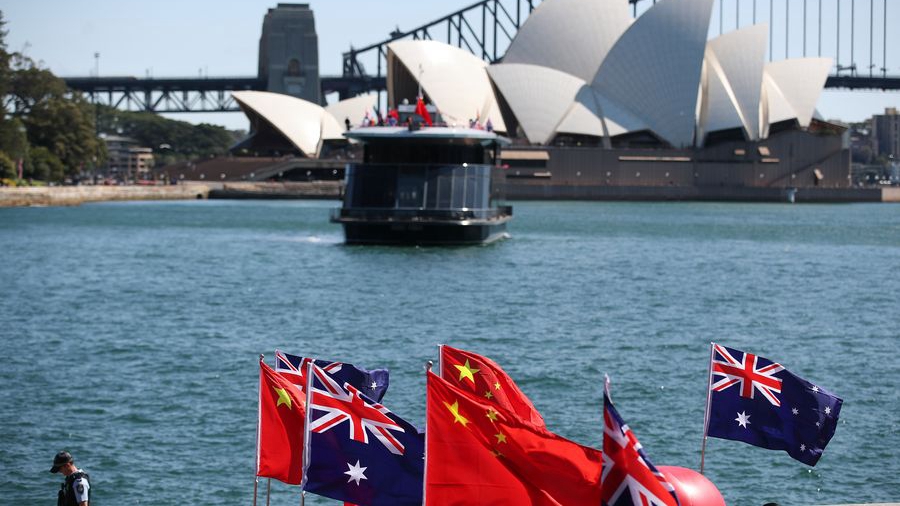Nation's investment in Australia falls sharply
By KARL WILSON in Sydney | China Daily Global | Updated: 2022-07-04 09:38

Focus shifts to domestic market, Europe, countries involved in BRI
Chinese investors are giving Australia a wide berth, and analysts say that unless there is a thaw in relations between the two countries, the situation may not improve in the near future.
Moreover, there are some other factors contributing to the decline in Chinese investments.
With ties between the two nations souring in recent years, investment flows into Australia have been declining since 2017, and the trend is more pronounced now.
The "Demystifying Chinese Investment" report from major accounting company KPMG and the University of Sydney said that Chinese investment in Australia plummeted by almost 70 percent last year, hitting its lowest level since 2007.
The report showed that Chinese firms invested some $600 million in Australia in 2021, compared with $1.9 billion in the previous year.
David Olsson, national president of the Australia China Business Council, said that while the fall in investment over the last year was "significant", he was not surprised.
"While many commentators point to tensions in the bilateral relationship as the cause of the decline, the reality is more complex," he told China Daily. "Certainly, bilateral tensions and COVID-19 travel restrictions played a part, but there are structural changes taking place as well."
Olsson said that China's economy is undergoing a transformation, with more focus on domestic market.
"Overseas expansion is being evaluated more carefully by the Chinese government. At the same time, the Australian government and the Foreign Investment Review Board have tightened the approval process for some types of Chinese investment. Australia is not an outlier. The decline in investment reflects a similar general decline in Chinese outbound investment globally," he said.
Hans Hendrischke, a professor of Chinese business and management at the University of Sydney's business school, said that he was "surprised" by the extent of the decline in Chinese investments in Australia in 2021, from a "comparative perspective".
"It was steeper than the drop in Chinese investment into the United States for that year, while Europe experienced an increase in Chinese direct investment," he told China Daily.
The KPMG-University of Sydney report said that China has shifted its focus from Australia and is now focusing on Europe and countries associated with the Belt and Road Initiative. Last year, Chinese investment in Europe was up around 25 percent.
Hendrischke, who was a co-author of the report, said the decline in Chinese investment in Australia has been "going on for several years".
He said two factors have played a role in the most recent fall. One is the COVID-19 pandemic, which prevented personal contacts crucial for smaller investments. The second is the difficult relations between Australia and China.
"A turnaround will depend on reestablishment of official dialogue and confidence-building from both sides. There are enough potential projects that could be revived at short notice," he said.
The report showed that Chinese investment deals in Australia last year almost halved in 2020.
Chinese companies invested a total of $110.1 billion in Australia between 2007 and 2021, but the investments have been shrinking since 2017.
With a change of guard in Canberra following Australia's May 21 federal election, analysts are hoping for a thaw in ties. The new administration led by Anthony Albanese is expected to be more open to resuming dialogue with China, compared with the previous Scott Morrison government.
China's ambassador to Australia, Xiao Qian, in an address to the Australia-China Relations Institute at the University of Technology in Sydney, said on June 24 that there is "good potential for cooperation" between Canberra and Beijing in the near future.
China is Australia's largest trading partner and the biggest customer for its iron ore, but relations deteriorated in recent years, especially under the Morrison government.
Wei Li, a lecturer in international business at the University of Sydney, said despite the highly politicized atmosphere, Chinese investors are holding on to their Australian assets.
"I don't see a major trend of Chinese companies withdrawing their investment in Australia yet," Li said. "The main sentiment is to wait and see."
Olsson, from the Australia China Business Council, said that there has been a "noticeable change in tone toward China from the new government, which has been reciprocated".
"The environment is now more conducive to the resumption of senior-level dialogue, which will be an important first step in renewing confidence in the Australian market among Chinese investors," he said.
Australia has "many characteristics that make it attractive to investors, including strong governance, top talent, world-class infrastructure" and proximity to fast-growing regional markets, Olsson said. "It is these natural advantages that I think will ensure that Chinese investors will continue to keep Australia on their investment radar."
























